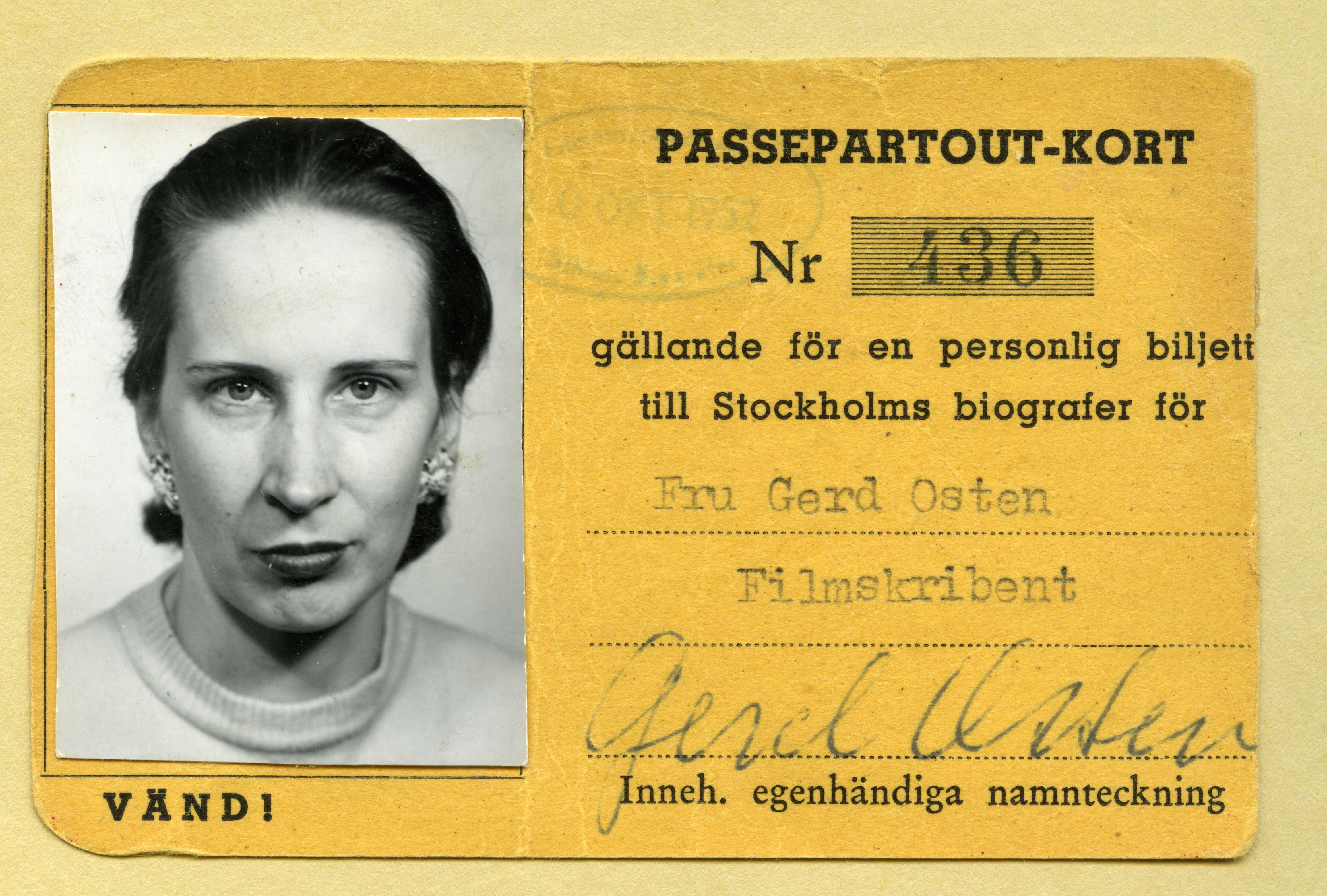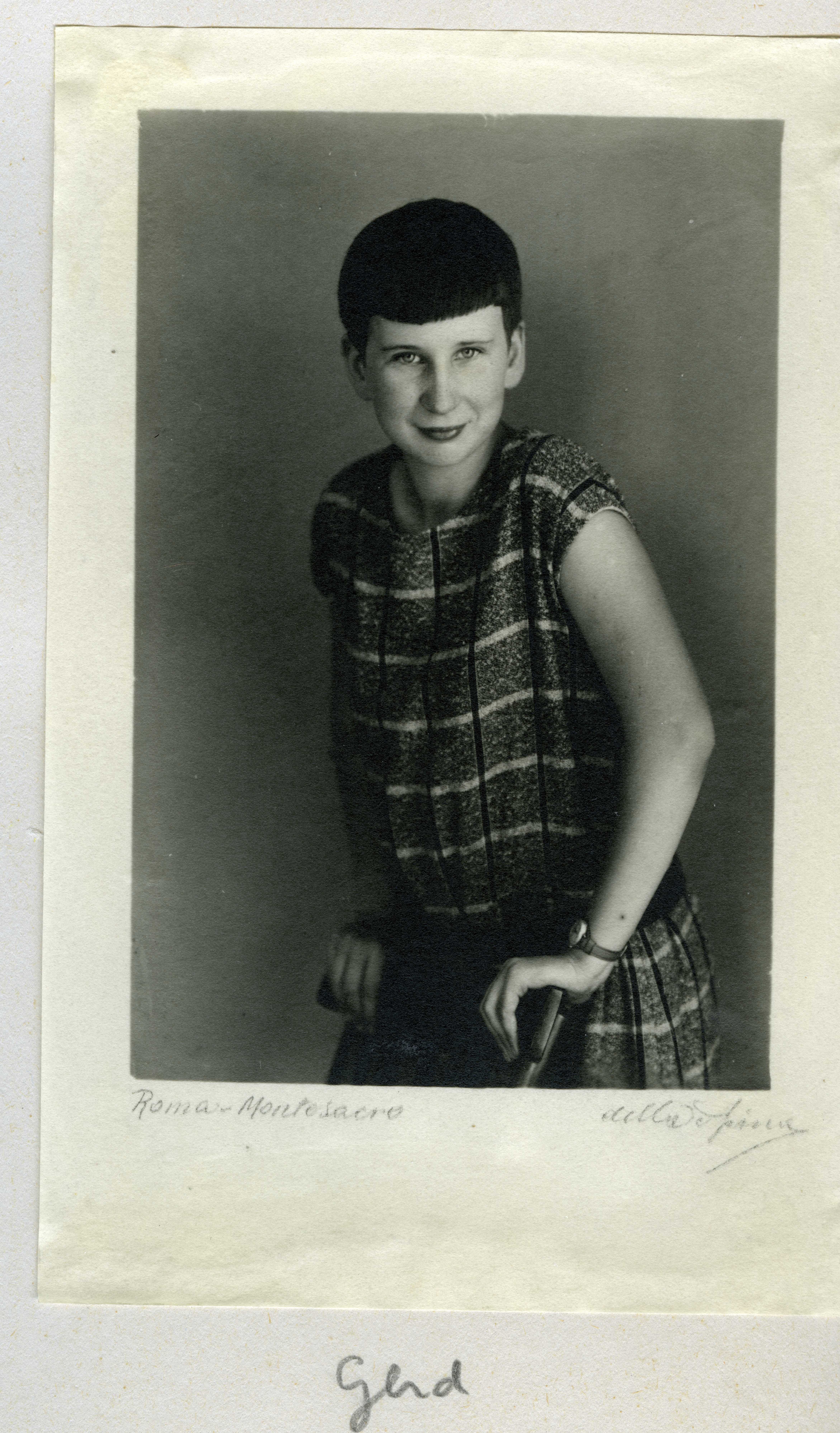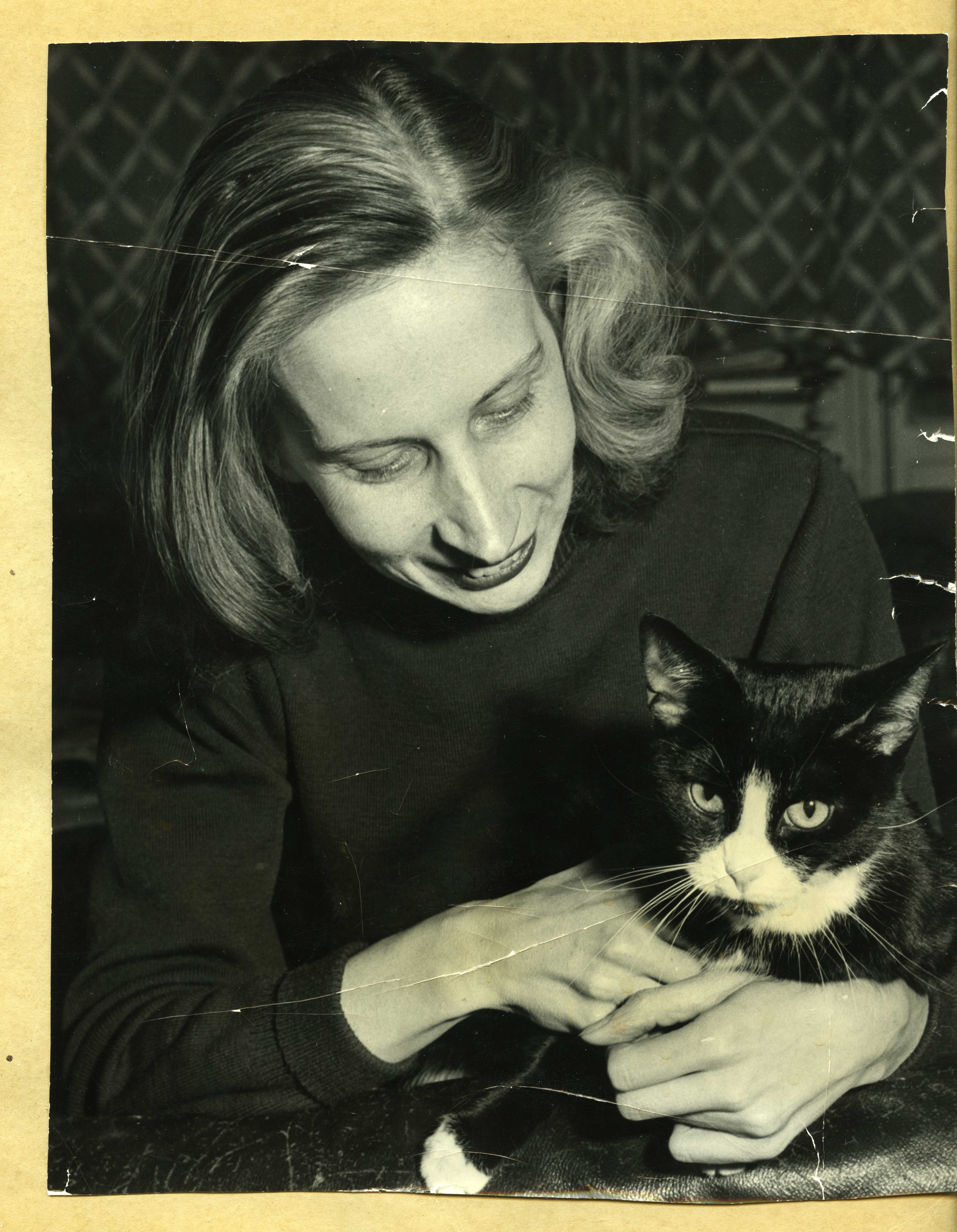Gerd Osten was one of Sweden’s leading film critics in the 1940s and a representative of a new, younger generation of writers who wanted to make their mark on Swedish film. From an early age she was fascinated by European film and how it influenced contemporary Hollywood film: French film noir, for example, and German expressionism, with its dark imagery, its acting that highlights powerful emotions and its sophisticated exploration of symbols and stereotypes.
Osten wrote film criticism in BLM, Dagens Nyheter and the magazine Vi under the moniker “Pavane”. Her film criticism has been collected in four volumes: “Det förlorade paradiset: essäer om film” (‘Paradise Lost: Essays on film,’ 1947), “Erotiken i filmen” (‘Eroticism in Film’ with Artur Lundkvist, 1950), “Nordisk film” (‘Nordic Film,’ 1951) and “Den nya filmrealismen” (‘The New Realism in Film,’ 1956). Yet unfortunately, most of the profound knowledge of the cinema and the passion for film as an art form expressed by Osten in her works remained on paper. She was not the only woman at that time who wanted to try her hand at film directing, but it is a well known fact that the film industry was for many years an industry almost exclusively for men. Osten was not so much a feminist as an artist whose work was nipped in the bud. Today she is best remembered as the spiritual writer she was, and as the mentally ill main character in Suzanne Osten’s film Our Life is Now (Mamma, 1982).
The story of her mother’s struggle to make films, Suzanne Osten’s film is in many ways the film that Gerd Osten wanted to make: a romantic adventure with a strong woman lead. Malin Ek plays Gerd Ekbom (Osten was her married name), a passionate film lover who is determined to defy all gender-related barriers and clichés. She intends to make a film about a highly competent woman who dares all. Nowadays we might easily imagine a kind of Lara Croft figure, but at that time – Sweden in the early 1940s – there was no forum for female creativity of this kind. And yet she carries on working on her screenplay and gets various pieces of advice from a male director named Bosse: write a proper ending; get some experience; work as a script supervisor on my film.
Bosse is a low-key portrait of Ingmar Bergman, and Osten was indeed the script supervisor for his film The Land of Desire (Skepp till Indialand, 1946, US title: Frustration). She worked as a script supervisor on only three feature films during the 1940s, and this was the extent of her professional experience in feature film production. In her working copy of the screenplay for the prison film Two Women (Två kvinnor, Arnold Sjöstrand, 1947), now part of the library collection of the Swedish Film Institute, one can follow her work via her notes and sketches.
Of the few films that Gerd Osten made only three have survived. In two short films she documented some of the most legendary figures of Swedish dance: Birgit Cullberg and Julius Mengarelli in Antonius och Cleopatra (‘Antony and Cleopatra,’ 1948), and Topsy Håkansson in Zigenardans (‘Gypsy Dance,’ 1948). The third is the short Ung kvinna (‘Young woman’), which may have been part of her proposed feature film, about a young woman waiting for her lover who subsequently metes out a sophisticated punishment on him after they have made love. This short film was screened in cinemas in 1954, surprisingly enough as part of an everyday newsreel.
In an essay on amateur filmmaking in Sweden between 1930 and 1965, film expert Mats Jönsson reveals that in 1938 a Swedish filmmaker named Gerd Baeckström took the short fictional film David to a film festival in Budapest for which she won the festival’s third prize. The following year, at a short film festival in Zürich, Baeckström took part with a film entitled November. Jönsson maintains that Gerd Osten and Gerd Baeckström are one and the same person, establishing her as part of the early, artistically-ambitious wave of Swedish short film production. Unfortunately neither David nor November have survived.
Mikaela Kindblom (2012)
(translated by Derek Jones)
Basic info
Main professions: Director, Journalist/Film Critic
Born: 1914
Died: 1974
Active: 1938-1956
Filmography
Regi:
Ung kvinna (1954)
Antonius och Cleopatra (1948, ingår i filmen Tre danser)
Zigenardans (1948, ingår i filmen Tre danser)
November (1939, ej bevarad)
David (1938, ej bevarad)
Oro (ca. 1936, ej bevarad)
Scripta:
Skepp till Indialand (1947)
Två kvinnor (1947)
Iris och löjtnantshjärta (1946)
Video
NUET Nordisk Tonefilms journal (5-11 april 1954) innehåller kortfilmen Ung Kvinna (ca. 2 min. lång) av Gerd Osten.
Tre danser (1946) – kortfilmer av Gerd Osten om modern dans med kvinnor i fokus.
Published works
Bibliografi i urval:
Bæckström, Gerd; Bæckström Tord (1938). Gåsa, gåsa klinga: gamla svenska barnkammarrim. (Stockholm: Vepe)
Osten, Gerd (1947). Det förlorade paradiset: essäer om film. (Stockholm: Kooperativa förb.)
Osten, Gerd; Lundkvist Artur (1950). Erotiken i filmen. (Stockholm: Wahlström & Widstrand.)
Horney, Karen; Osten Gerd (1950). Våra inre konflikter. (Stockholm: Koop. förb.)
Osten, Gerd (1951). Nordisk film. (Stockholm: Wahlström & Widstrand.)
Osten, Gerd (1956). Den nya filmrealismen. (Stockholm: LT.)
Awards
1938: Pris för kortfilmen David vid filmfestivalen i Budapest.


